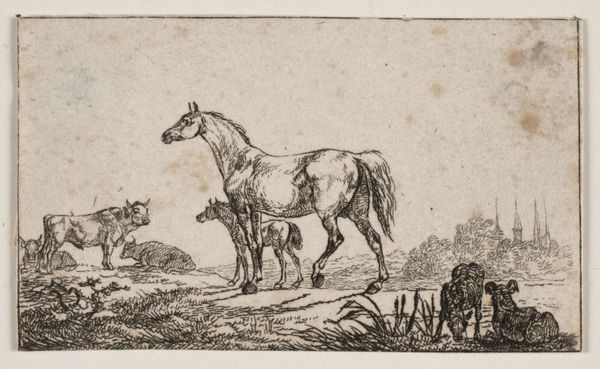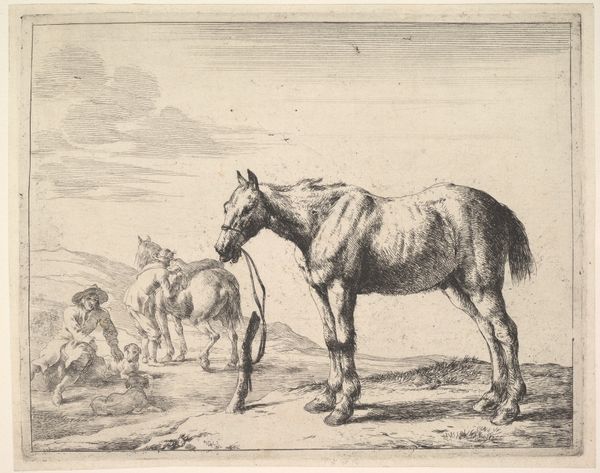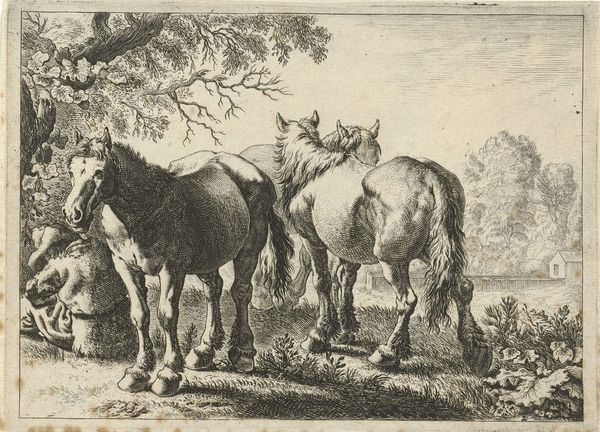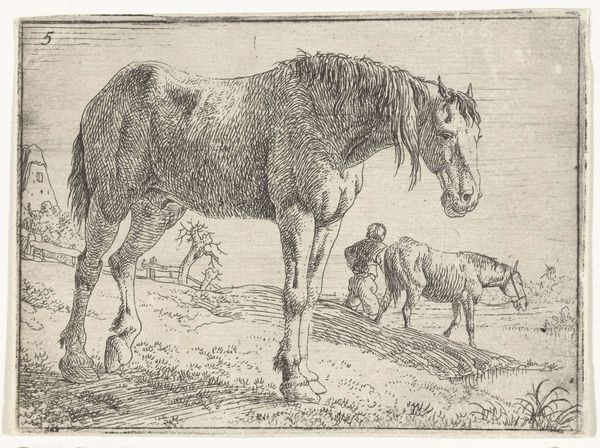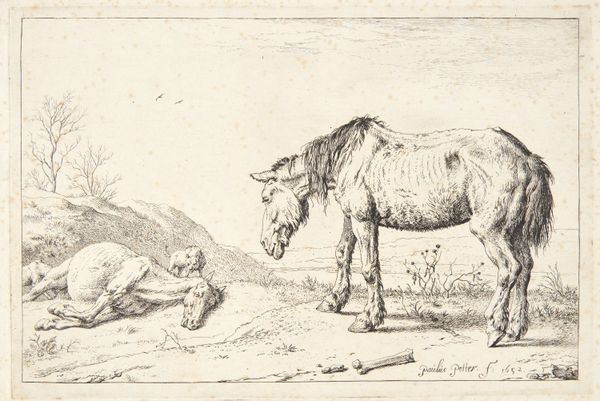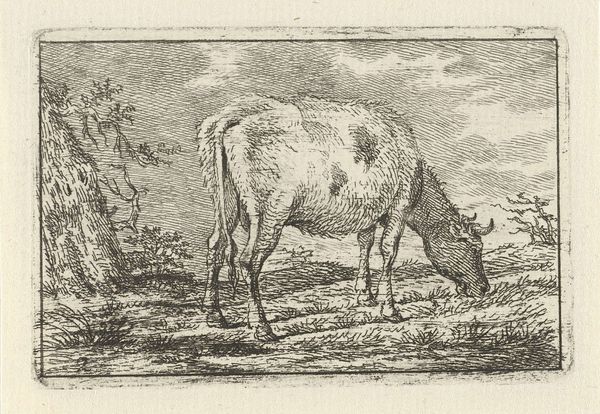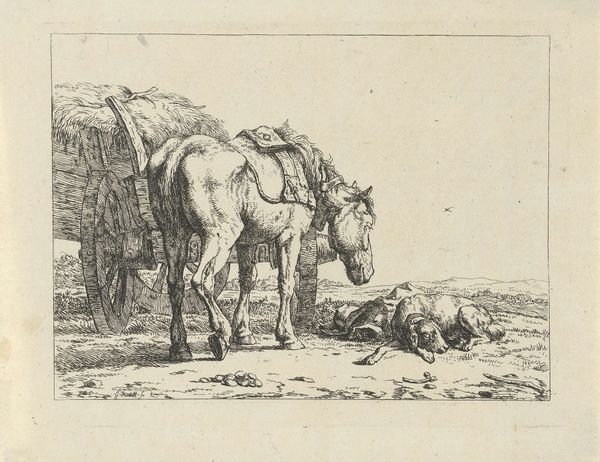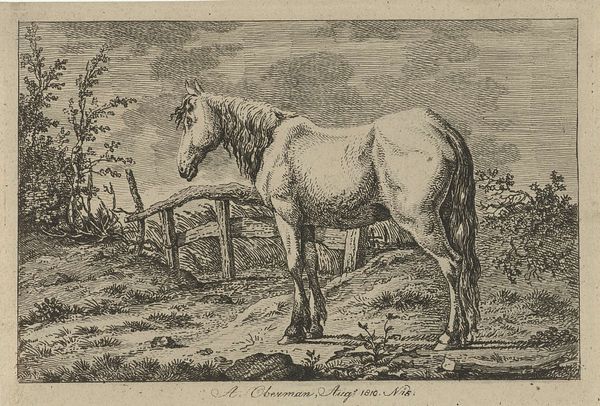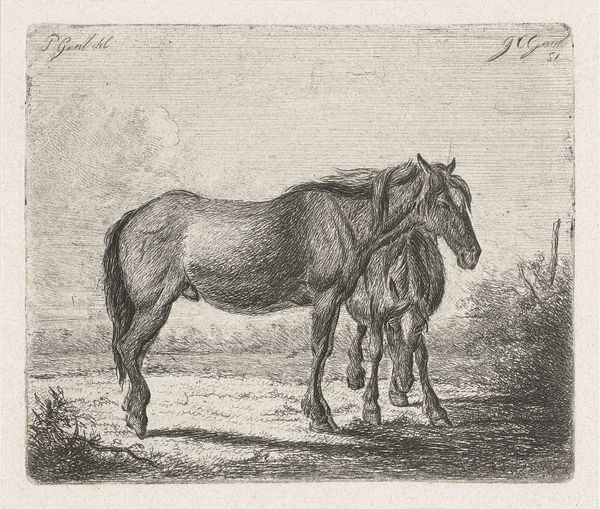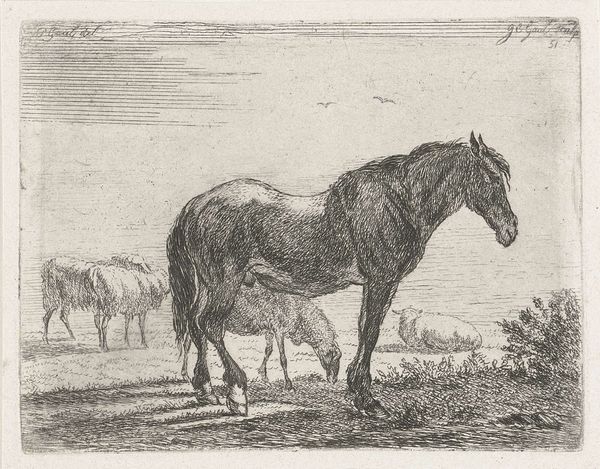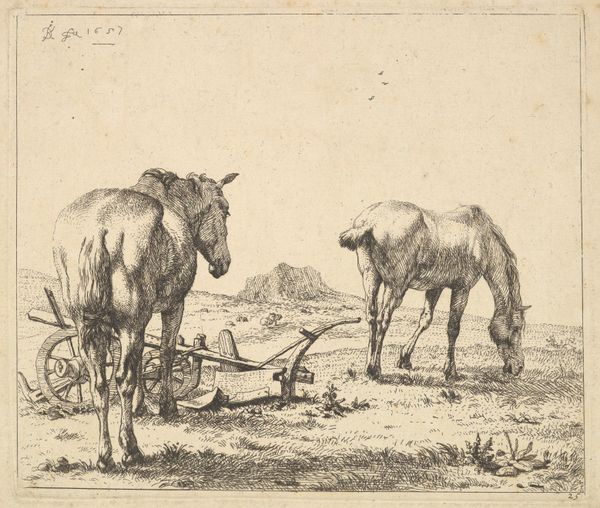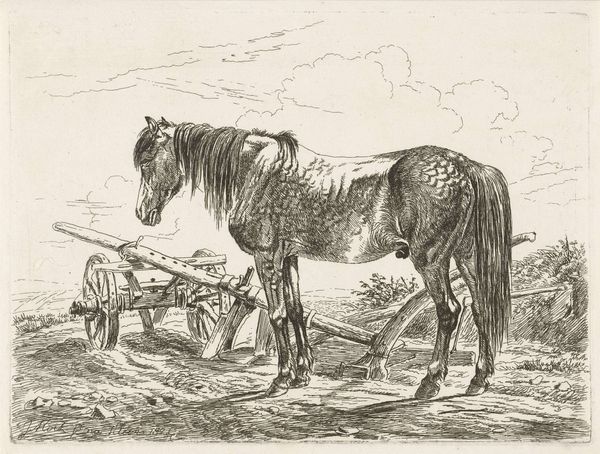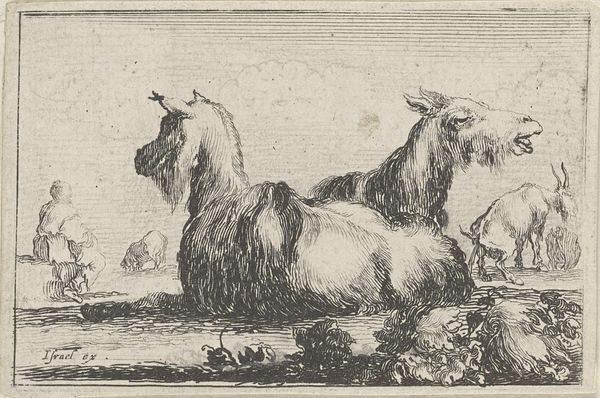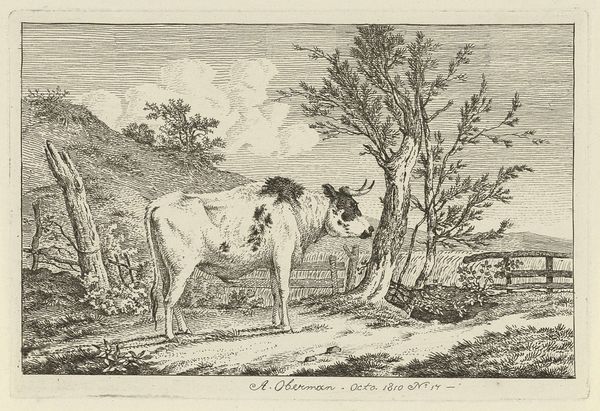
drawing, print, etching, paper, engraving
#
portrait
#
drawing
# print
#
etching
#
pencil sketch
#
landscape
#
paper
#
horse
#
genre-painting
#
engraving
#
realism
Dimensions: height 125 mm, width 163 mm
Copyright: Rijks Museum: Open Domain
Louis Moritz created this print, "Two Horses," with etching in the early 19th century. It depicts, in a seemingly simple composition, a standing horse and another lying down in a pastoral setting. But what does it mean to depict horses at this moment? The Dutch, like other Europeans, were in the midst of the industrial revolution, and the old agrarian ways of life were quickly changing. Horses had, for centuries, been central to farming, transportation, and warfare. As technology advanced, their roles were evolving, making images like this a form of cultural reflection on a changing relationship between humans and animals, and a way of life that was disappearing. To truly understand this work, one might research Dutch agricultural practices of the time, popular attitudes towards animals, and the rise of landscape art as a genre. Art history reminds us that even seemingly straightforward images are embedded in complex social and historical contexts.
Comments
No comments
Be the first to comment and join the conversation on the ultimate creative platform.
